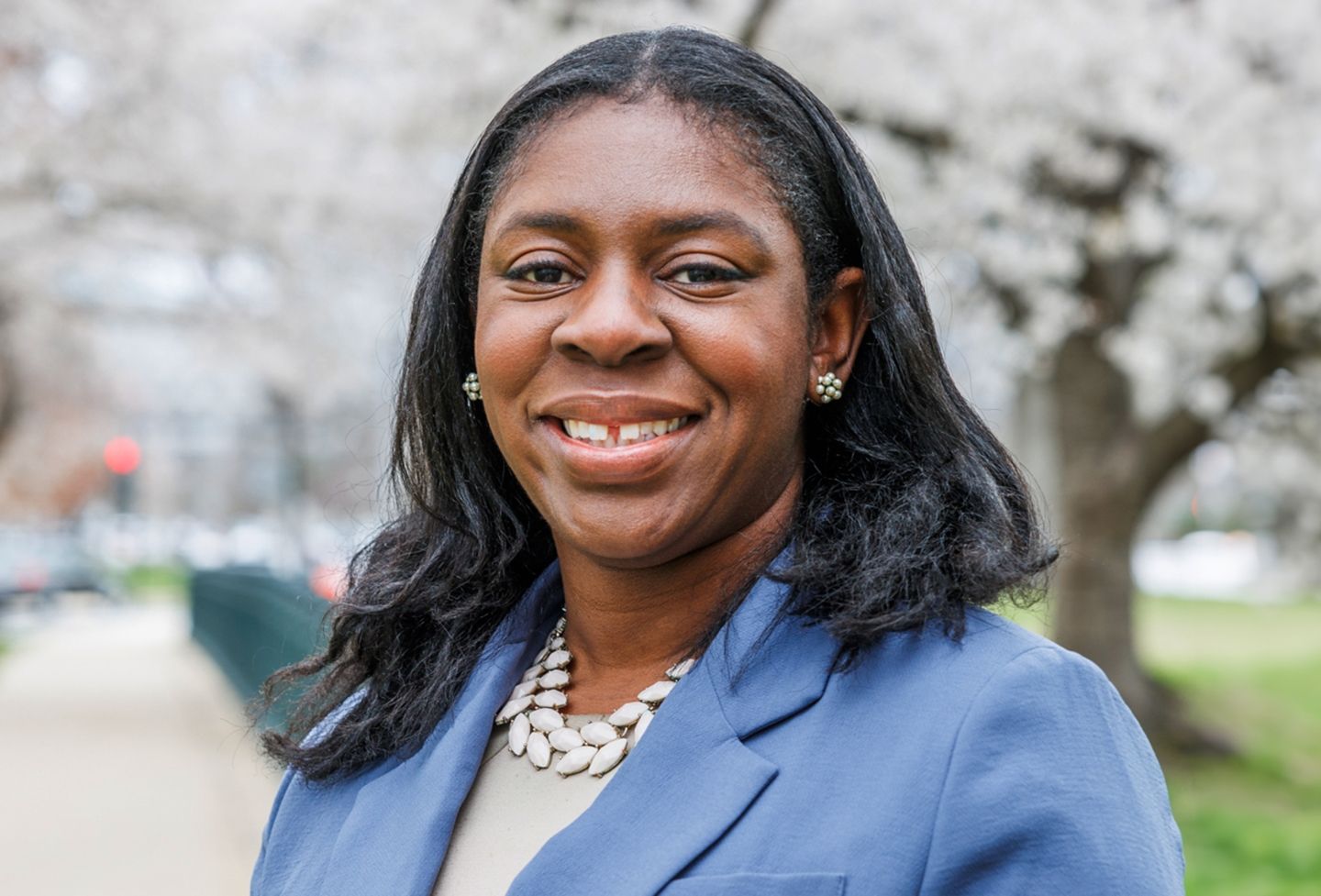Property Rights Defenders Consider Albemarle a Hot Spot
Virginia's Albemarle and Loudoun counties are in the national spotlight as two localities where local governments' growth management techniques are arousing fear that traditional concepts of property ownership are being undermined, according to Christopher Byrnes, an associate attorney with Defenders of Property Rights, who spoke to a lunch gathering of students at the invitation of the Federalist Society Sept. 9.

"Albemarle and Loudoun are the two most high-profile localities in the nation for property rights disputes," Byrne said, adding that Loudoun, currently the second fastest growing county in the United States, is an example of the failure of "smart growth" policies implemented to contain the sprawling character of new development. Loudoun faces nearly 300 lawsuits stemming from zoning changes it made in the 1990s that were designed "to keep people out," Byrne said. The county raised the minimum lot size in its rural areas from 3 acres to 20-50 acres, effectively "drying up the available land," he said, and compromising the values and options of landowners. The resulting spike in land costs drove out the smaller businesses in the real estate and development industry, he said.
Byrne said Americans' popular concept of property is the "classical" one articulated by James Madison, principal author of the U.S. Constitution. "Madison said the protection of property is the reason for government, that the purpose of the Constitution is to 'secure to every man what is his own,'" Byrne said. "That means property is not just the land or the house, but what is the fruit of one's labor. In a real free society, one has the freedom to enjoy the fruits of one's labor." He said that point was being lost on local governments as they "fall prey to smart growth policies."
Defenders of Property Rights is a nonprofit public interest law firm formed in 1990 "to counterbalance the growth of government regulations that were undermining property rights," according to DPR Director of Policy and Development Brian Rogers, who was also on hand. The firm takes pro bono cases, conducts advocacy campaigns for property rights and analyzes proposed legislation for its implications for those rights, Rogers explained.
"The right to own property is the most fundamental feature of property rights," Byrne said, "but you must be able to use it for that to be meaningful."
DPR is representing Patricia Kluge and her husband William Moses in their application to the Albemarle Board of Supervisors for a special use permit for "Vineyards Estates" a plan to put 30 houses on 511 acres in the Blenheim area of the county. The permit would exempt them from the county's 21-acre lot requirement in rural subdivisions. They can build that many houses "by right" (without special permission), according to Moses, who spoke to students about the plan and its property rights issues.
Kluge and Moses are pursuing the permit because they want to "change the paradigm" of growth toward what he called a European style of land use, Moses said. More than 300 acres would be used for grape growing or put into a conservation easement. The property has been examined for soils, slope, drainage and other agricultural considerations and the best land would be used for viniculture, Moses said. He said that he and Kluge are especially interested in promoting sustainable environmental practices.
The houses, which he acknowledged would be expensive, would be dispersed on the unfarmed portions. The county's current zoning mindset results in what Moses called "piano key" lots marked off along roads with the large remainders of the original parcel in their rear. Because they can make virtually the same amount of money from a by-right development, the issue really is the style of the growth.
The plan is opposed by some local residents and the Piedmont Environmental Council, which Moses described as adamant that no deviation from the 21-acre-lot rule be allowed. He said that the county is considering increasing the lot size to 50 acres and that the controversy over his plan is "the first battle in the 50-acre war." The Virginia Farm Bureau is alarmed that the 50-acre minimum could make the inheritance of farms less viable and is opposed to the change, he said.
"Ninety-five percent of the land in Albemarle is in the rural area and 95 percent of the landowners there don't know this is coming," said Moses, who is a lawyer.
Byrne suggested that students looking to do pro bono work related to property rights should join in the case. Asked about conservation easements, he said that because they are entered into voluntarily the DPR does not oppose them, but he believes few people who create them appreciate the implications of their eternal character. "The easement is forever, but tax policy is subject to change."
Founded in 1819, the University of Virginia School of Law is the second-oldest continuously operating law school in the nation. Consistently ranked among the top law schools, Virginia is a world-renowned training ground for distinguished lawyers and public servants, instilling in them a commitment to leadership, integrity and community service.


